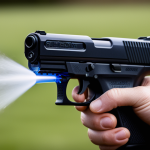Unlock Peak Focus: Essential Techniques for Mental Sharpness in Extensive UK Karate Competitions
The Importance of Mental Focus in Karate
When it comes to karate, particularly in the competitive UK scene, mental focus is just as crucial as physical prowess. Karate practitioners, or karatekas, need to cultivate a strong mental foundation to excel in tournaments and dojo settings. This mental sharpness is what sets top athletes apart, enabling them to perform at peak levels even under intense pressure.
“Mental toughness is the key to success in any martial art. It’s what allows you to stay focused and composed, even when the stakes are high,” says a seasoned karate coach.
Also to read : Effective Techniques for UK MMA Fighters to Manage Adrenaline and Boost Performance
Building Mental Toughness Through Training
Cognitive Training and Mindfulness
To build mental toughness, karatekas can incorporate various cognitive training techniques into their routine. Mindfulness practices, such as deep breathing exercises, progressive muscle relaxation, and guided meditation, are highly effective. These techniques help in managing stress and maintaining mental clarity.
- Deep Breathing Exercises: These help in reducing anxiety and improving focus. By taking slow, deep breaths, karatekas can calm their mind and prepare for intense physical activity.
- Progressive Muscle Relaxation: This technique involves tensing and relaxing different muscle groups to release physical tension, which can also alleviate mental stress.
- Guided Meditation: Regular meditation sessions can enhance mental clarity and resilience. Karatekas can visualize successful outcomes and practice mental rehearsal of techniques to boost confidence and focus.
Visualization Techniques
Visualization is a powerful tool in sports psychology that can significantly enhance performance. By mentally rehearsing sparring scenarios and techniques, karatekas can improve their reaction time and cognitive function.
Topic to read : Essential Kumite Drills for UK Karate Enthusiasts: Master Your Performance!
“Visualization helps me prepare for any situation that might arise during a match. It’s like a mental rehearsal that makes me more confident and focused,” explains a UK karate champion.
Physical Activity and Mental Health
The Mind-Body Connection
Physical activity and mental health are intricately linked. Regular physical training not only improves physical performance but also enhances mental well-being. In karate, this connection is particularly important.
| Physical Activity | Mental Health Benefit |
|---|---|
| Cardiovascular Training | Reduces stress and anxiety |
| Strength Training | Boosts self-esteem and confidence |
| Flexibility Exercises | Improves mood and reduces depression |
| Kumite Drills | Enhances focus and reaction time |
Engaging in these physical activities can improve cognitive function, reduce mental fatigue, and promote overall health.
Exercise and Endurance
Endurance is a critical component of karate training. Building physical endurance through rigorous practice sessions can also enhance mental endurance. Here are some ways to improve endurance:
- Interval Training: Incorporate high-intensity interval training to improve cardiovascular endurance and mental toughness.
- Long-Duration Drills: Engage in extended kumite drills to build both physical and mental stamina.
- Strength Conditioning: Incorporate strength training to improve overall physical performance and mental resilience.
Managing Stress and Maintaining Clarity Focus
Self-Talk and Positive Reinforcement
Self-talk plays a significant role in maintaining mental clarity and focus. Positive reinforcement through affirmations can help karatekas stay motivated and focused.
“Positive self-talk is crucial. It helps me stay confident and focused, even when I’m under pressure,” says a UK karate athlete.
Intrinsic Motivation
Intrinsic motivation is the drive to perform well because of personal satisfaction rather than external rewards. Cultivating intrinsic motivation can help karatekas stay focused and committed to their training.
| Techniques to Enhance Intrinsic Motivation |
|---|
| Set personal goals and challenges |
| Celebrate small victories |
| Find joy in the process of learning and improving |
| Seek feedback from coaches and peers |
Practical Techniques for Peak Performance
Kumite Drills and Mental Preparation
Kumite drills are not just physical; they also include mental preparation. Here are some essential drills and techniques:
- Basic Drills: For beginners, focus on simple footwork exercises and basic striking and blocking combinations. These drills help in understanding distance and timing.
- Intermediate Drills: For intermediate practitioners, incorporate combination drills that enhance fluid attack patterns and defensive strategies.
- Advanced Drills: For seasoned karatekas, scenario-based drills that simulate competitive situations are crucial. These drills help in developing the ability to anticipate and respond under pressure.
Mental Health in Recovery
Post-training recovery is also a critical aspect of maintaining mental health. Here are some strategies:
- Nutritional Strategies: A balanced diet rich in proteins, carbohydrates, and essential nutrients supports muscle recovery and overall health.
- Mindfulness and Meditation: Regular mindfulness sessions can help in managing stress and maintaining mental clarity.
- Visualization: Visualizing successful outcomes can help in building confidence and focus.
Expert Opinions and Testimonials
Insights from Seasoned Karatekas
Veteran karatekas often emphasize the importance of combining physical, nutritional, and mental recovery techniques.
“Mental recovery is just as important as physical recovery. It’s about finding a balance that works for you,” advises a seasoned UK karateka.
Quotes from Coaches on Mental Preparation
Top coaches stress the importance of tailored mental preparation techniques.
“No single method works for everyone. You need to find what works best for your mind and body,” says a renowned karate coach.
Regional Resources and Support
Local Training Clubs and Programs
UK-based karate clubs often offer structured classes and programs focusing on mental preparation and recovery. These clubs provide comprehensive resources, including stretching routines, nutritional advice, and mental resilience practices.
Recovery Events and Workshops
Workshops dedicated to recovery are prevalent, offering karatekas a platform to learn from experts. These events cover topics ranging from nutrition to advanced mental resilience techniques.
Common Mistakes and How to Avoid Them
Underestimating Mental Preparation
One frequent mistake is underestimating the significance of mental preparation. To avoid this, karatekas should focus on integrating mental training into their daily routine.
- Regular Self-Assessment: Consistently assess your mental state and identify areas needing improvement.
- Feedback from Coaches and Peers: Seek constructive criticism to highlight areas needing enhancement.
- Practicing Simulated Scenarios: Regularly practice simulated sparring scenarios to strengthen response times and accuracy.
Health and Safety Considerations
Safety Gear and Warm-Up Routines
Proper safety gear and thorough warm-up routines are essential for preventing injuries and maintaining peak performance.
- Safety Gear: Use hand wraps, mouthguards, and shin guards to protect against physical impact.
- Warm-Up Routines: Engage in thorough stretching and light aerobic exercises to prepare the body for physical exertion.
Achieving peak focus in extensive UK karate competitions requires a holistic approach that combines physical training, cognitive techniques, and mental health strategies. By incorporating mindfulness practices, visualization techniques, and tailored recovery methods, karatekas can enhance their mental sharpness and perform at their best.
“Peak performance is not just about physical strength; it’s about mental toughness, focus, and clarity. When you combine these elements, you become unstoppable,” concludes a UK karate champion.
In the world of martial arts, mental focus is the unsung hero that can make all the difference between victory and defeat. By embracing these essential techniques, karatekas can unlock their full potential and achieve peak performance in the most demanding competitions.


